From EQ to AQ: The Skills We Need for the Workplace of the Future
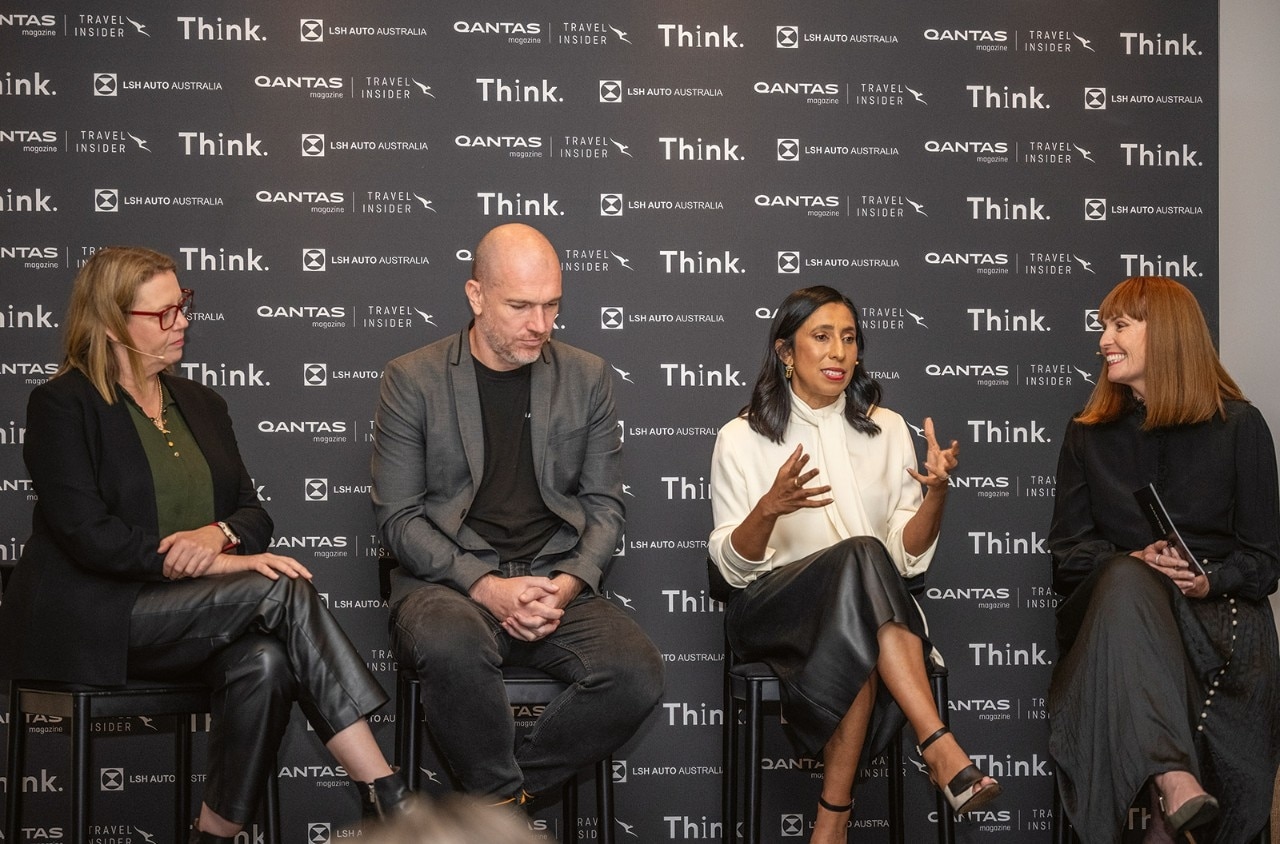
From EQ to AQ: The skills we need for the workplace of the future. Three leaders shared their insights at Think., Qantas magazine’s thought leadership series that combines smart conversation with great food and wine. The panel discussion, at Brent Savage’s Brasserie 1930 in the Capella Sydney, was moderated by Editor-in-Chief Kirsten Galliott.
Jenelle McMaster
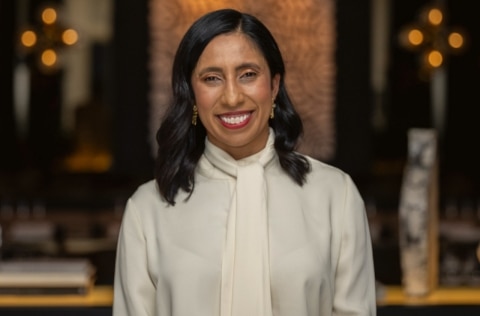
The deputy CEO and markets leader at EY Oceania has been leading transformational change for more than 20 years. She has a BA in Economics with an honours degree in Psychology from the University of Sydney. A member of the Australian Institute of Company Directors and of Chief Executive Women, McMaster is committed to driving cultural change and shifting mindsets about the realms of the possible.
Dom Price
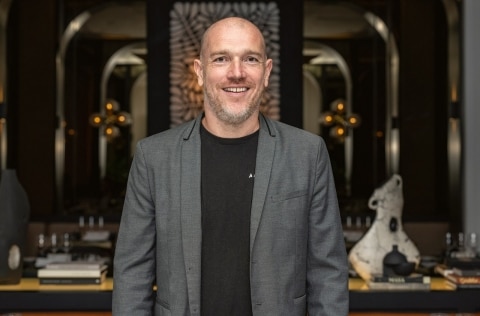
Manchester-born Price is the resident work futurist at Australian-born tech giant Atlassian. He originally studied accountancy and recently earned his MBA from AGSM at UNSW Business School. With his passion for elite human performance and building effective distributed teams, Price has worked and travelled far and wide (50-plus countries and counting) but Australia has been his home for 20 years.
Sally Bruce
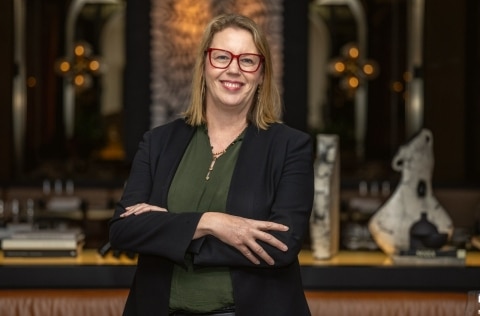
The chief operating officer at Culture Amp, an employee experience platform and one of Australia’s tech unicorns, has a Master of Applied Finance from Macquarie University. She’s a former CEO of AMP Bank Ltd, has held senior leadership roles at National Australia Bank and Macquarie Group and is an experienced board member of not-for-profit organisations. Bruce is passionate about what she calls “positive disruption”.
Kirsten Galliott : We all know what IQ is but what are EQ and AQ – and why should we care?
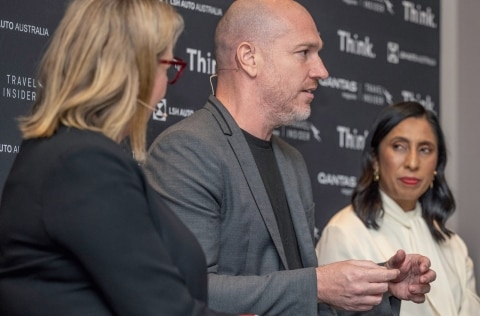
Jenelle McMaster: EQ is emotional quotient – your ability to understand and regulate your own emotions, your empathy and awareness of other people and how you problem-solve using social skills. AQ is your adaptability quotient – your capacity to adapt, your resilience, flexibility, willingness to understand context and to move with that. The reason we need to care is the complexity of the world around us. Humans have always been adapting. Charles Darwin called it a long time ago: we have an exceptional ability to adapt. But today, no matter who I speak to, whatever their demographic profile or industry, everyone says something feels different now. Maybe it’s social media, the polarised geopolitical landscape, climate change, the tectonic shifts of AI – or the confluence of all those things – causing it. But there’s so much complexity that trying to navigate it only with IQ – being smarter and more technical – isn’t enough to understand the landscape. You need the ability to grasp the complexity and adapt to it.
Sally, does IQ matter anymore?
Sally Bruce: I’m never going to say that IQ is irrelevant; it’s immensely helpful. But I agree, the rate of change in an AI world does require us to be able to adapt. This isn’t new, of course. Jenelle referenced Darwin and there’s also American psychologist Carol Dweck, who’s been studying this since the 1970s, with her theory of the growth mindset. It’s about believing that you can change your capability through persistence and perseverance and not seeing failure as an impediment to progress but rather a necessity. One of my favourite lines is that “FAIL” stands for “first attempt in learning”. IQ will always be the wind beneath your wings but constant learning is required – and an appetite not only to do it but to find joy in it.
There’s the grit piece, too, isn’t there?
SB: Dweck tracked a group of American teenagers who were national champions at school but none of them became champions as adults. Because their champion status was confirmed as teenagers, they developed fixed mindsets and didn’t want to put their status at risk. The juniors who came third or fourth felt they had nothing to lose so they were the ones with the determination to build their capability and they became world number ones. The growth mindset is “failure is my fuel”.
I know you’re big on risk, Dom.
Dom Price: Understanding the growth mindset isn’t a problem. As a society we suffer from knowledge obesity – we know more than we’ve ever known before but we do sod all with it. The skill is applying that knowledge but the problem is the system – whether that’s education or the workplace – doesn’t encourage us to take risks, be bold or adapt. It says, “Comply.” It says, “I’m going to hire smart people who are creative and give them a process to follow.” The real challenge for us as leaders is what risks are we willing to take so those around us are encouraged to follow?
What do the people who are successful at being adaptable look like, Jenelle?
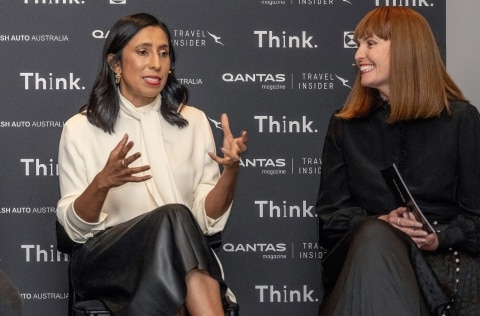
JM: As Dom said, they are the people who are willing to take risks and are genuinely curious. When they ask a question they aren’t doing it for the opportunity to validate their own position. They are willing to park their technical expertise and become the expert learner and say, “But what if this happened or that happened? What do you think?” It’s multiple scenarios, trying something out, failing and coming back to it.
SB: What I like about that is it’s continuous learning without being high risk. We talk about creating safe environments to fail – that’s a leadership challenge and incredibly important. But what you’ve just described doesn’t need permission or a safety net; it’s something you can enact without either of those things.
Sally, what can organisations do to encourage people to fail in a safe way?
SB: At Culture Amp, it’s part of our stated values. It’s the courage to be vulnerable and the concept of failing fast – it’s okay to try things. Last year, for example, we ran more than 80 brand experiments, expecting some to be successful and some to fail. We’d watch them with great interest, amplify the ones that worked, learn from the ones that didn’t, iterate and keep going. We love to think about how many more experiments we can run, creating an environment where iteration is progress, not failure – it’s how we get smart quickly.
You and Dom both work for tech companies where it’s almost incumbent on you to be failing and experimenting. Jenelle, how does that translate in a more corporate setting?
JM: It’s challenging, to be honest. There’s always the talk – we say we want to work like that but it can be unsafe, knowing there are clear areas where we can’t expose our organisation or other companies. Our purpose is to build a better working world. The slogan is: “The better the question, the better the answer, the better the world works.” But it’s more than a slogan because we work with our clients to come up with a better brand question, rather than accepting the one that’s on the tender. When you do that, the conversation changes and possibilities open up. We definitely have more parameters than a tech company but our clients and our people expect us to innovate and adapt.
Dom, you’re passionate about the process of “unlearning”. What does that mean?
DB: It’s confronting the fact that if things aren’t going well, you might be the problem. The unlearning exercise is called the Five Ls: what do I Love about myself as a leader; what do I Long for; what do I Loathe; what have I Learnt; and what have I Laughed at in the past 90 days? What am I going to remove that isn’t working for me anymore and what’s new that I’m going to sprinkle in and try? You don’t evolve as a leader by adding, you evolve by subtraction. As a society, we’ve gotten carried away with addition. You have to remove things first to give yourself the space, the time and the freedom.
What’s the best thing you’ve subtracted?
DB: I removed a lot of meetings, saying each was either a boomerang or a stick. If it’s a boomerang, there’s a purpose and it will come back. If it’s a stick, it doesn’t come back. I got 15 hours of my week back to spend on better things. But I can’t blame meetings – I blame my ego for attending meetings, thinking they’re better when I’m in them. It was a me issue, not a meeting issue.
Sally, how do you identify the people who have the adaptability quotient when you’re hiring?
SB: When I interview someone, I ask them for the biggest mistake they’ve made and how they recovered from it. It’s a way to uncover the people who can share their learning journey and say, “I got it wrong, I stank, the outcome was terrible and here’s how I recovered.” How honestly they answer and how big their mistake is accelerates how I feel about someone in a conversation – and it never lets me down.
We need to prioritise reskilling the workforce. How do we go about that?
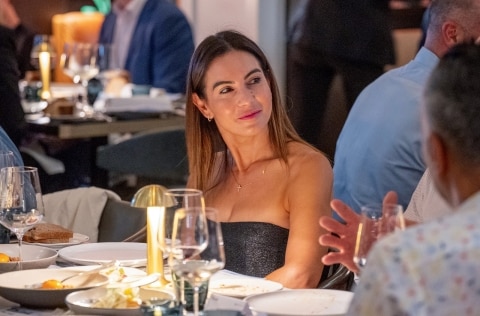
JM: Things are changing at a faster pace but the pace at which we’re learning is dropping. In 2013, [the rate of] non-formal learning was at 32 per cent. In 2020, it had dropped to 27 per cent and since then, it’s reduced again. The half-life of skills – the point at which half of your skills are obsolete – is also shrinking. It’s now at five years and only about two-and-a-half years in some areas of tech. The validity of learnt skills is getting shorter and shorter while our rate of learning is becoming slower and slower and that’s a divide we can’t afford to have. We need to learn continuously to bridge the gap.
What should people be doing about upskilling around AI?
SB: Be thoughtful about the AI tool you’re using – where is the information going and where is the data stored? AI is a great enhancer: I’m not going to be replaced by a robot, I’m going to be replaced by someone who’s harnessing what’s at their disposal and can do my job better than I can with it. The example we’ve been living with for a long time is that someone, like me, who’s directionally challenged can become a competent Uber driver when you put a maps app in their hand. The opportunities are amazing. And the ability for us to create more value and more interesting work is very real.
Do those opportunities extend to people translating old skills into new ones, Dom?
DP: Wearing my Atlassian hat, I’m optimistic about productivity gains for knowledge workers – it’s super-exciting because AI offers so much to improve how we work. But in the United States right now the largest employment role is “driver” – bus driver, taxi driver, Uber driver, delivery driver. What could they retrain to be? Now is the time to look at the morals, ethics and potential impacts of AI and to do it in a way that everyone benefits from. We have to be purposeful and considerate. And whose job is it to do the reskilling – government, the education system, corporates, not-for-profits? Or should the individual educate themselves? We’re spending so long having that argument, no-one is gaining the skills.
How can AI help us improve EQ in the workplace?
SB: We’ve been doing some work using generative AI for feedback. We provide online tools for people to provide feedback, which becomes part of the repository for an individual’s performance and is shared with them and their manager. When someone is giving feedback, they can be in any kind of frame of mind and their assessment can be constructive – or not. But when they’re crafting their response, generative AI can be used to prompt, “Hey, I find this kind of feedback lands better if you couch it this way.” Even if they dismiss the suggestion, they’ve ingested the information. The next time they provide an appraisal, generative AI will again suggest an alternative pathway. You’re creating micro-learning moments that can change behaviour and lead to constructive feedback. This isn’t going to replace someone whose EQ is already highly evolved but it can take someone on a journey that evolves them.
What are some practices that people can employ to become more adaptable?
DP: Use the words, “How might we?” If we had to make that thing that seems impossible a thing... How might we? Often because we’ve got a deadline, we close things down and go to our default thinking. Instead, let’s try it quickly, the smallest possible thing. Did it work? Yes, do more. No, then stop. But keep saying, “How might we do it differently?”
JM: We did a version of that with an exercise called “Yes, and…” Rather than shutting it down with “No, because…”, no matter how crazy the idea was, you would say, “Yes, and…”, then build on that. Even if we came up with something ludicrous, by the time you’d accumulated “Yes, ands…”, a world of possibilities had opened up. And then you move into experimental mode.
SB: When someone is asking you for something, another unlocking question you can use as a leader is to respond with, “What would you ask for if you could have everything you needed right now?” Someone comes to you preconditioned to what they think they can get a “yes” for because of all the “no” responses in between. If you say, “If you could have anything in this moment, what would it be?”, even if it’s not possible, it invites creativity and unlearns all the ways you’ve modified your request through previous learnings.
What would each of you like the audience to take away from this discussion?
DB: Give it a red hot go. We over-index on the consequences of trying things. Do you perform heart surgery? No? Then whatever idea has been ruminating in your head for a while, give it a try. You might damage a few egos but no-one is going to die. If the idea works, do more of it. If it doesn’t work, try something different. If you don’t try and just watch what happens around you, you’re allowing mediocrity to continue.
JM: Let go of the idea of being a learned expert and embrace being an expert learner. Go in with genuine curiosity, ask a different question and challenge yourself to come up with “What if?” If you run an organisation, are you fostering curiosity and exploration? All of our structures reward busy work, getting lots of stuff done, ticking things off and efficiencies. It takes time to be curious and pause and reflect. Are you creating the conditions to allow that to happen?
SB: Wisdom is everywhere, in every room, in every experience. Take the time to notice it and listen to it. If, like me, you’re on the wrong side of 50, speak to as many young people as you possibly can because your perspective is dated and your relevance is at risk. You aren’t the experience or knowledge expert anymore. The landscape is changing constantly and wisdom is everywhere. Make sure you use it.
You’re invited...
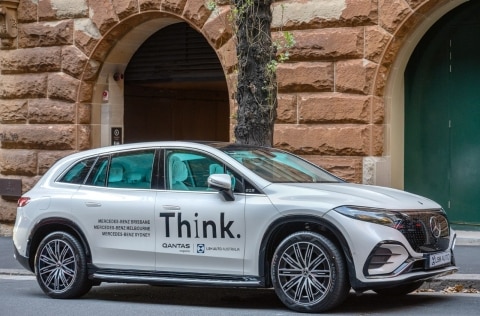
Our next Think. event will be in Brisbane on 29 July 2024.
For more information, visit thinkbyqantasmagazine.eventbrite.com.au
Enquiries: rsvp@mediumrarecontent.com

Start planning now
SEE ALSO: Turning Points: How 9 Small Businesses Evolved For the Future
Image credit: Chris L Jones


